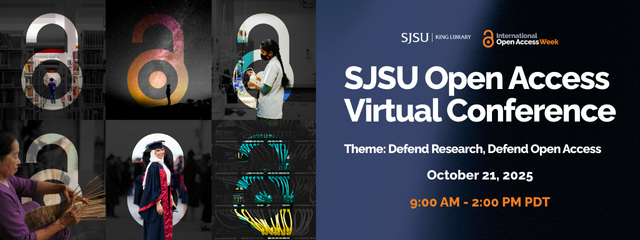Location
Room 225
Start Date
23-10-2017 1:30 PM
End Date
23-10-2017 2:00 PM
Description
Building ethnically diverse collections has always been challenging -- either because minority communities do not see traditional institutions as keepers of their histories or librarians/archivists are not embedded sufficiently in the communities to recognize the value of their materials. And lastly, when communities do donate physical materials, processing and enabling access to these collections can often be slow, due to a myriad of reasons. The perception of a lack of public interest may lead to low processing priority, which only increases the potential for loss. Minority communities' motivation may be negatively impacted, furthering mistrust of traditional institutions and harming any potential momentum in acquiring materials.
Open access platforms provide libraries and librarians with new opportunities to develop ethnically diverse collections without donors having to donate and gift items. It also allows the nonspecial collection library from needing the required archival space and requirements to properly house physical materials.
At the Cultural Heritage Center at San Jose State University (SJSU), we have been digitizing community and university materials from our race/ethnic communities. SJSU faculty, students, and alumni have been pleased with the discoveries of these collections, which include graduation programs and student publications. Most libraries have access to the common hardware and software that can offer a more inclusive perspective than the traditional Special Collections archives. We will demonstrate how a team of individuals can make libraries' digital collections more inclusive and ethnically rich and diverse.
Included in
Archival Science Commons, Collection Development and Management Commons, Scholarly Communication Commons, Scholarly Publishing Commons
Building Ethnically Diverse Digital Collections
Room 225
Building ethnically diverse collections has always been challenging -- either because minority communities do not see traditional institutions as keepers of their histories or librarians/archivists are not embedded sufficiently in the communities to recognize the value of their materials. And lastly, when communities do donate physical materials, processing and enabling access to these collections can often be slow, due to a myriad of reasons. The perception of a lack of public interest may lead to low processing priority, which only increases the potential for loss. Minority communities' motivation may be negatively impacted, furthering mistrust of traditional institutions and harming any potential momentum in acquiring materials.
Open access platforms provide libraries and librarians with new opportunities to develop ethnically diverse collections without donors having to donate and gift items. It also allows the nonspecial collection library from needing the required archival space and requirements to properly house physical materials.
At the Cultural Heritage Center at San Jose State University (SJSU), we have been digitizing community and university materials from our race/ethnic communities. SJSU faculty, students, and alumni have been pleased with the discoveries of these collections, which include graduation programs and student publications. Most libraries have access to the common hardware and software that can offer a more inclusive perspective than the traditional Special Collections archives. We will demonstrate how a team of individuals can make libraries' digital collections more inclusive and ethnically rich and diverse.

